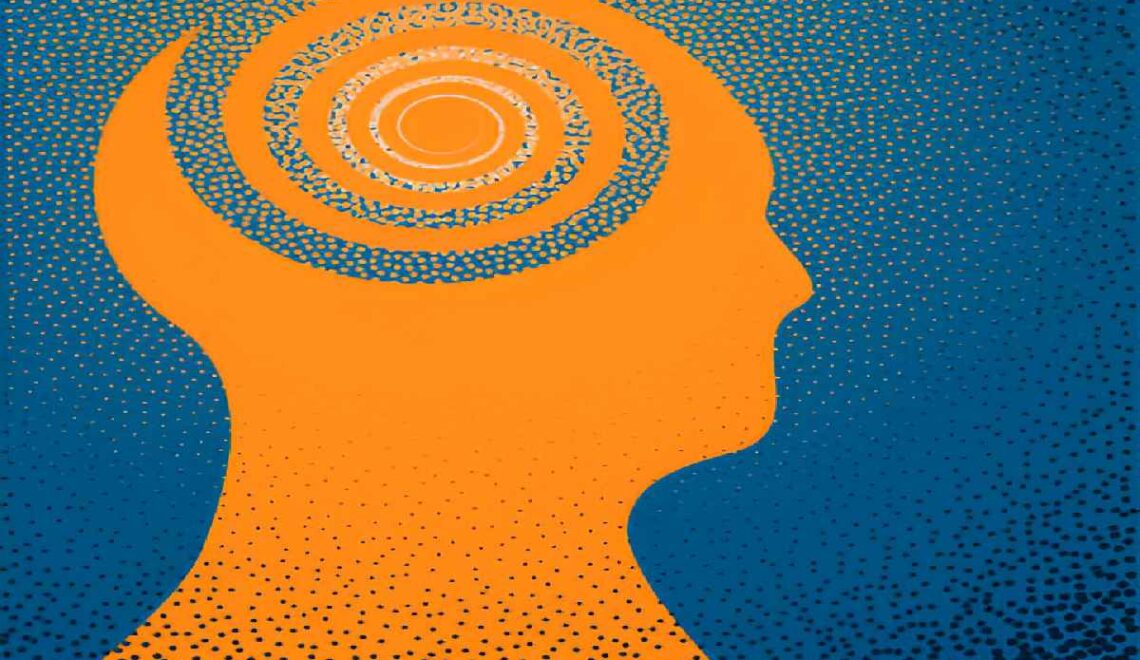“Hyperfixation: When Your Brain Goes All In”

Hey there! Let’s dive into the wild world of hyperfixation.
Have you ever found yourself so obsessed with something that you can’t think about anything else?
That’s hyperfixation in a nutshell.
It’s like your brain hits the turbo button on one specific topic or activity.
Suddenly, you’re knee-deep in a new hobby, binge-watching a show, or learning everything about ancient Roman plumbing.
Sound familiar? You’re not alone.
It is more common than you might think.
It’s often associated with ADHD, but anyone can experience it.
Let’s explain what hyperfixation means and how it can impact your life.
What Exactly is Hyperfixation?

Hyperfixation is an intense focus on a single thing.
It could be a new interest, a project, or even a person.
Your brain becomes a sponge, soaking up every detail about your chosen fixation.
Time flies by when you’re in this state.
Hours can pass without you even noticing.
It’s like being in a bubble where nothing else matters.
The Upsides of Hyperfixation
Believe it or not, hyperfixation isn’t all bad.
It can supercharge your productivity.
When you’re hyper-fixated on a task, you might get more done than ever.
It can lead to developing new skills at lightning speed.
It can fuel creativity and innovation.
Many great inventions and works of art have come from periods of intense focus.
The Downsides of Hyperfixation
Of course, there’s a flip side to this coin.
Hyperfixation can throw your life out of balance.
You might neglect other important tasks or relationships.
Sleep? Who needs it when you’re in the zone, right? (Wrong!)
It can be frustrating for friends and family who feel ignored.
Sometimes, hyperfixation can lead to burnout if you’re not careful.
How to Recognize Hyperfixation
So, how do you know if you’re hyper-fixating?
Here are some signs to watch out for:
- Losing track of time when engaged in your chosen activity
- Forgetting to eat or sleep
- Difficulty switching to other tasks
- Talking about your fixation constantly
- Feeling anxious or irritated when you can’t engage with your fixation
- Neglecting other responsibilities or relationships
Managing Hyperfixation
If hyperfixation is causing problems in your life, don’t worry.
There are ways to manage it:
- Set timers to remind you to take breaks
- Use apps to limit your time on certain activities
- Practice mindfulness to become more aware of your behavior
- Create a schedule that includes time for your fixation and other essential tasks
- Talk to friends or family about your tendencies
- Consider speaking with a therapist if hyper fixation is seriously impacting your life
Harnessing the Power of Hyperfixation
What if you could channel that intense focus into something positive?
Here are some tips to make hyper fixation work for you:
- Use it to tackle big projects at work or school
- Learn a new skill you’ve always wanted to master
- Turn your fixation into a side hustle or creative outlet
- Set goals related to your current fixation to feel a sense of accomplishment
Remember, it’s all about balance.
Hyperfixation and Relationships
Let’s talk about how hyperfixation can affect your social life.
It’s difficult for others to understand why you’re so focused.
Communication is critical here.
Explain to your loved ones what you’re experiencing.
Set boundaries and make time for the people in your life.
Consider sharing your fixation with others who might be interested.
Maybe you’ll find a new connection through your intense interests!
When to Seek Help
Sometimes, hyperfixation can be a sign of underlying issues.
It might be time to talk to a professional if it disrupts your life.
They can help you develop strategies to manage your focus.
Remember, there’s no shame in asking for help.
It’s all part of understanding yourself better.
Embracing Your Unique Brain
Hyperfixation is just one way your brain works.
It’s not inherently good or bad – it’s just you.
Working with your tendencies rather than against them can be a game-changer.
Embrace your ability to dive deep into topics.
Just remember to come up for air now and then!
FAQs
Q: Is hyperfixation the same as addiction?
A: While they can share some similarities, hyper fixation is different from addiction. Addiction typically involves harmful behaviors and physical dependence, while it is more about intense focus.
Q: Can hyperfixation be beneficial?
A: Yes! When appropriately channeled, hyperfixation can lead to increased productivity, skill development, and creative breakthroughs.
Q: How long does hyperfixation usually last?
A: It varies from person to person. Some fixations might last a few days, while others can go on for months or years.
Q: Can you have multiple hyperfixations at once?
A: It’s possible but less common. Most people tend to focus intensely on one thing at a time.
Q: Is hyperfixation a sign of ADHD?
A: While hyper fixation is often associated with ADHD, it’s not exclusive to it. People without ADHD can also experience hyperfixation.
There you have it – a deep dive into the world of hyperfixation.
Remember, your brain is unique and powerful.
Learning to work with it, quirks and all is the key to unlocking your full potential.
So go ahead and dive deep into your interests.
Don’t forget to come up for air and say hi to the rest of us occasionally!
